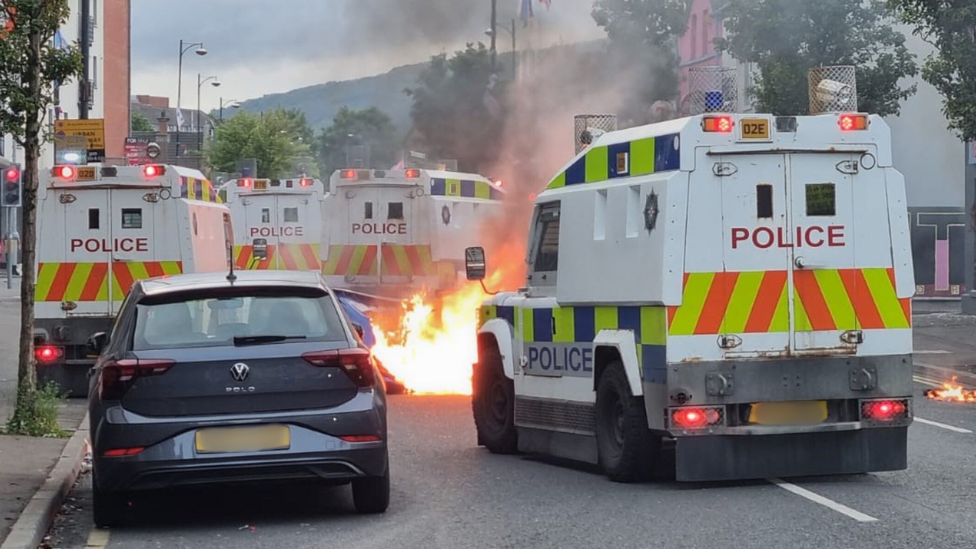Ethnic minority communities remain fearful, say police
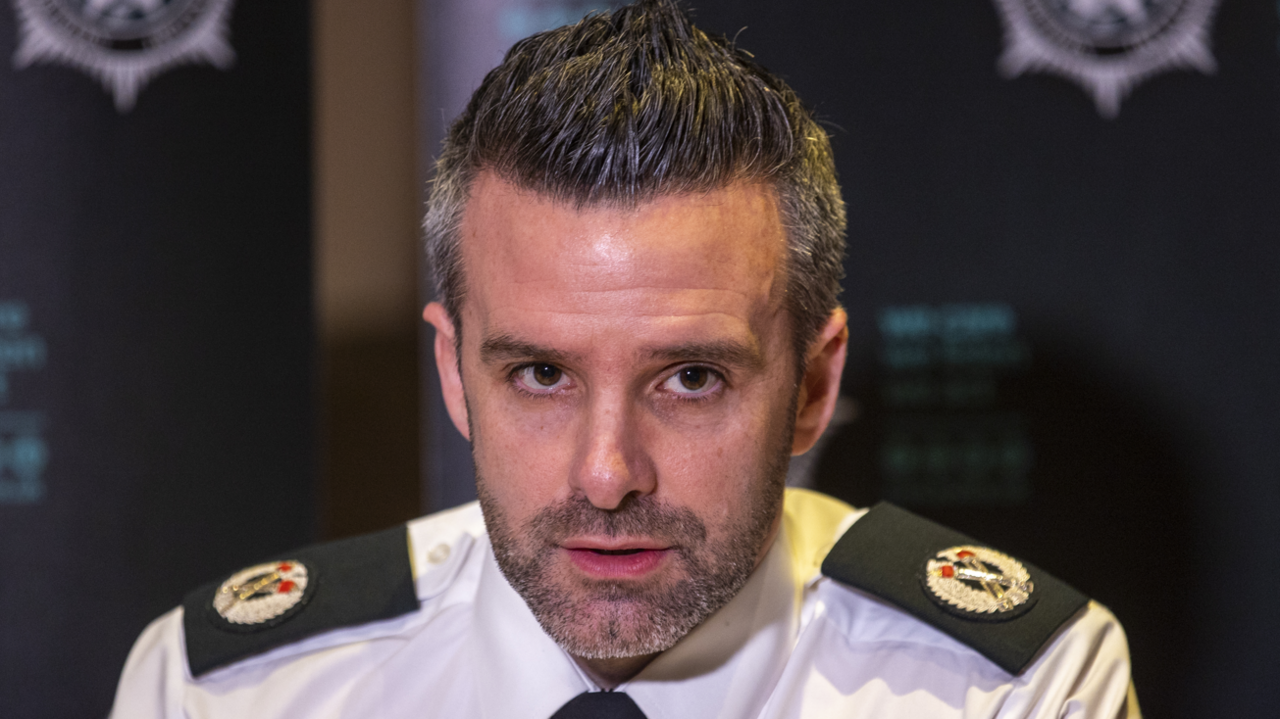
ACC Singleton said there were "challenges" in bringing racist hate crime through the criminal justice system.
- Published
There remains "a very real sense of fear" in ethnic minority communities in Northern Ireland two months after racist violence in Belfast, the Police Service of Northern Ireland (PSNI) has said.
Addressing a Stormont Executive committee, Assistant Chief Constable Bobby Singleton said the wider community needed to stand up to what he described as "racist thugs".
ACC Singleton said the police were working through three-and-a-half thousand hours of CCTV and body worn footage relating to the violence.
He said 49 people had been arrested since the violence at the beginning of August and 39 people had been charged to appear in court.
"I want to assure you and the community that there is much more to come," he said.
He also said the PSNI faced particular "challenges" in bringing racist hate crime through the criminal justice system.
"The vast majority of hate crime incidents in Northern Ireland involve damage to property and take place in circumstances where there are limited evidential opportunities or witnesses who are willing to give evidence," he said.
ACC Singleton added that racism was "a deep-seated, long running, and a societal issue which needs to have a whole societal approach in response".
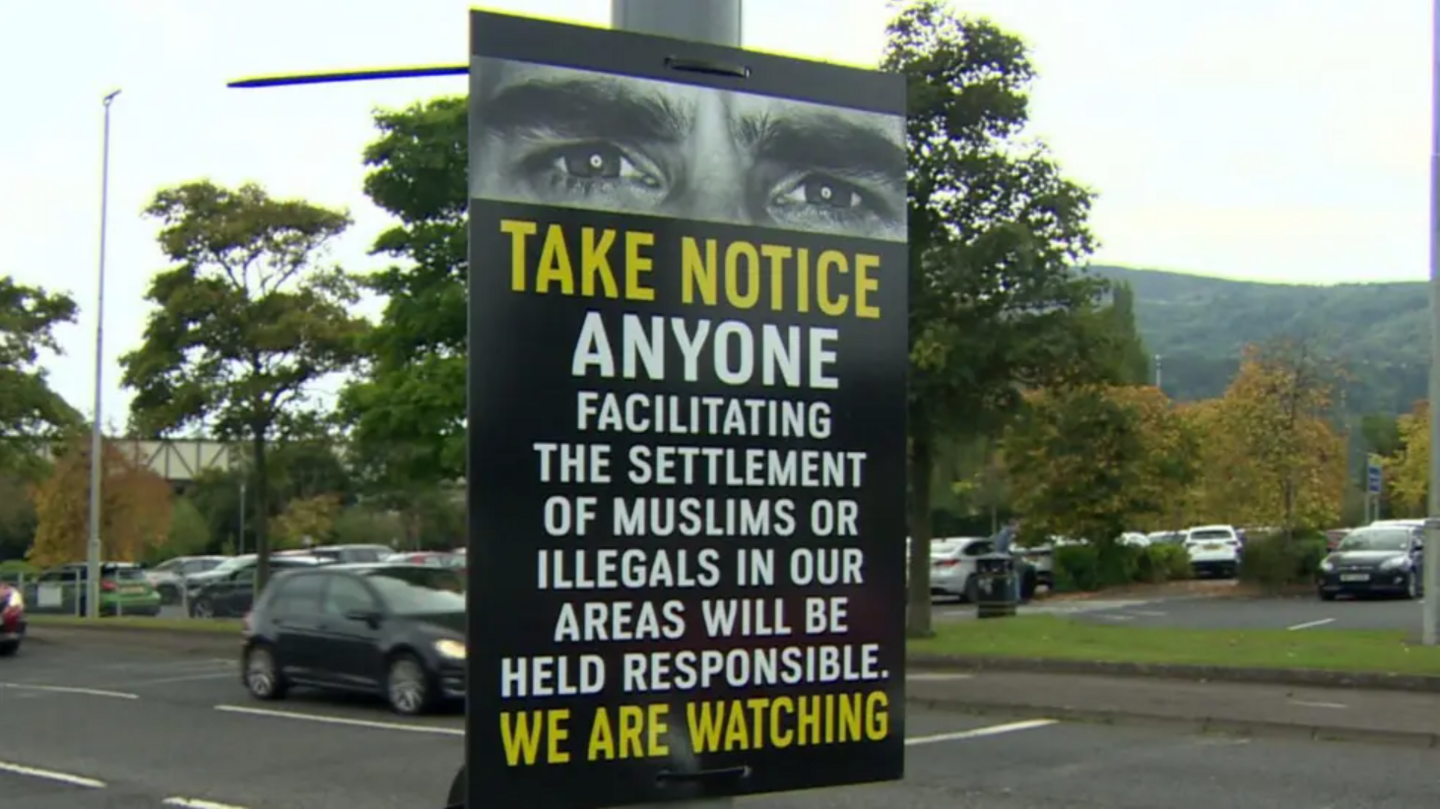
Mr Singleton was asked about racist posters put up in Newtownabbey
Referring to racist posters removed by the police from lampposts in the Rathcoole estate in Newtownabbey at the end of September, almost two months after they were put up, he repeated his view they should have been removed "much sooner".
After the police removed the posters, ACC Singleton criticised the Department for Infrastructure for not removing them sooner.
However, the department hit back at the PSNI saying Minister John O'Dowd, wrote to Chief Constable Jon Boutcher earlier in September month asking the police to take action.
On Wednesday, ACC Singleton revealed the PSNI expected to meet the Department for Infrastructure in the near future "to discuss how we can collectively provide the most effective and timely response going forward".
He also indicated how inaction by public authorities was being viewed in ethnic minority communities.
"I heard first hand from the Muslim community that the inertia of public authorities around hate displays gives rise to a concern that we are at best complacent about this sentiment or at the very worst somehow supportive of it," he said.
He said that demonstrated the need for the relevant public authorities to "redouble our efforts" to show that there is no tolerance for such behaviour.
'No role for paramilitaries in our society'
During his appearance, ACC Singleton was questioned by the committee chairwoman, Alliance assembly member Paula Bradshaw, about a recent claim the PSNI had encouraged some members of the ethnic community, who were being intimidated or whose homes were attacked, to check with what she described as "community workers by day, thugs, paramilitaries by night" to establish if it was safe for them to stay in certain local communities.
The assistance chief constable responded by saying: "There's no role for paramilitaries in our society."
"Community representatives may be a different matter.
"I'm aware of instances where we would encourage people to engage with local community representatives, those that work for properly accredited and funded initiatives.
"So, I would draw that distinction."
Ms Bradshaw responded: "If you work that backwards, how can a community worker give a reassurance that the paramilitaries aren't going to attack a house at night.”
"It's just that linkage there, that inextricable link, between a community worker and whether or not a paramilitary organisation is going to organise for a house to be attacked or someone is going to get beaten up on their way home for work."
ACC Singleton replied: "I think that's a legitimate question and you know I'm happy in this specific instance that you have mentioned to go away and just make some further enquiries to establish the kind of circumstances surrounding that."
- Published25 September 2024
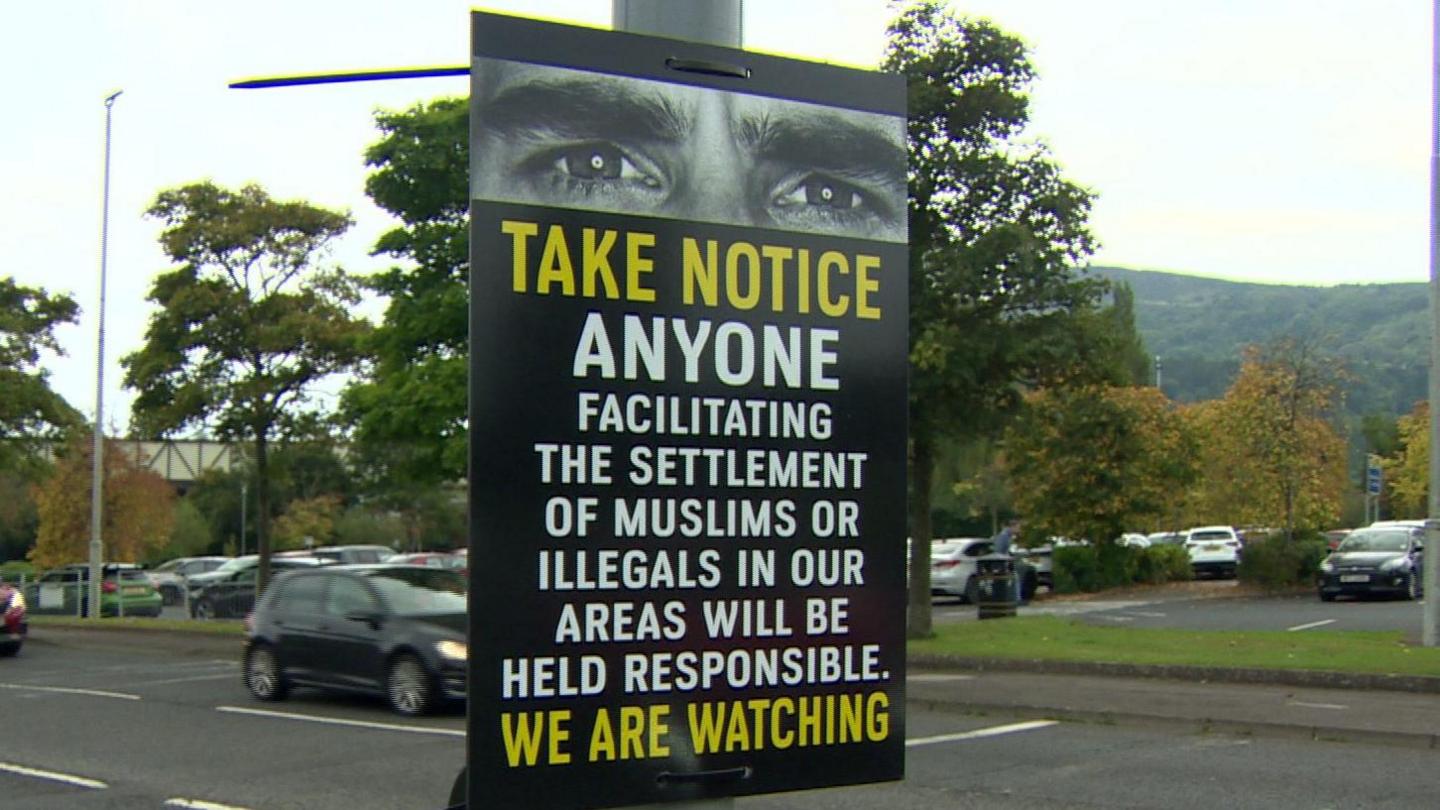
- Published18 September 2024
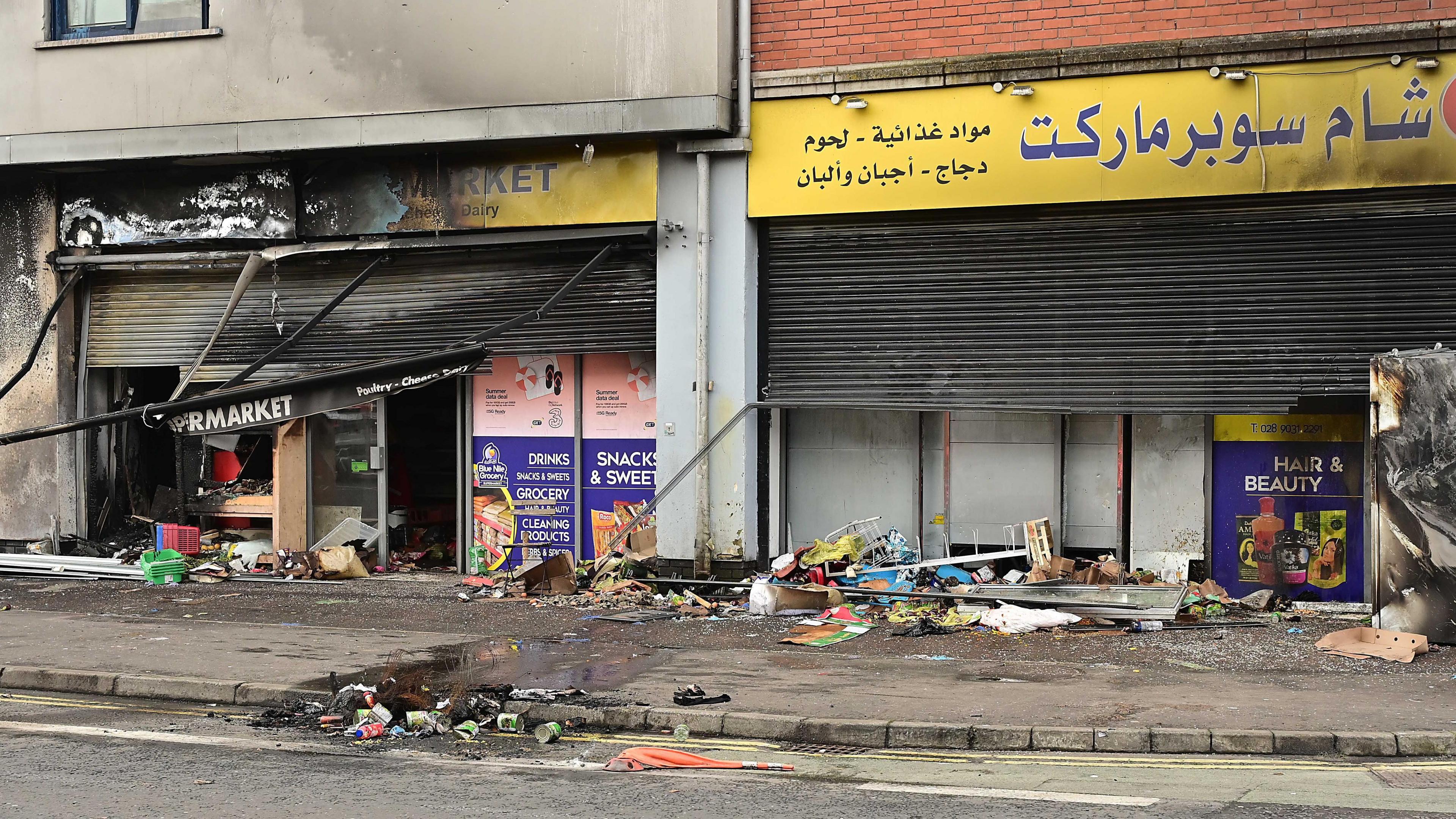
- Published23 August 2024
